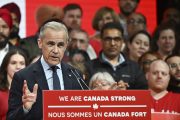Honduran President Roberto Micheletti announced that he is ready to sign an agreement that could reinstate ousted President Manuel Zelaya and end the country’s political crisis, VOA News reported early on October 30. Micheletti was installed by a congressional vote as the Central American’s president on June 28 as a replacement for President Manuel Zelaya, who was exiled by the military acting on the orders of the Honduran Supreme Court. Late on October 29, Micheletti said that he has authorized his negotiating team to sign an agreement that “marks the beginning of the end” of the four-month political standoff. The Honduran congress must approve the deal.
Micheletti said his willingness to reach an agreement was a “significant concession” on his part. “I have authorized my negotiating team to sign a deal that marks the beginning of the end of the country’s political situation,” he said in a statement.?? Hours later, AP reported that representatives of ousted President Zelaya had reached an agreement with the Micheletti government that could end the dispute over Honduras’s presidency, and possibly pave the way for Zelaya’s reinstatement.
The Organization of American States (OAS) announced the deal late on October 29 but did not release a text of the accord, in which Zelaya appears to have agreed to throw his fate into the hands of a congress that has largely supported interim President Roberto Micheletti.
“We are optimistic because Hondurans can reach agreements that are fulfilled,” Zelaya told Radio Globo, a station that opposes Micheletti. “This signifies my return to power in the coming days, and peace for Honduras.” Zelaya snuck back into Honduras on September 21 and has since been living in the Brazilian Embassy in Tegucigalpa.
A report in the Christian Science Monitor noted that the deal would include the creation of a power-sharing government and that both sides would agree to abide by results of the presidential elections schedule for November 29. The agreement would also lead to the end to international sanctions, which were imposed on Honduras by the United States and other countries in an attempt to pressure the Micheletti government to accept Zelaya’s return to power.
The Monitor noted that these were the original points agreed upon in a plan first unveiled by Costa Rican President Oscar Arias, who has served as negotiator in the attempt to reach a deal. Other negotiations were launched by the Organization of American States (OAS), but both efforts broke down because the matter of Zelaya’s return to the presidency could not be settled. ??Secretary of State Hillary Clinton commented on the Honduran development on the morning, October 30, from Islamabad, Pakistan:
I’m very pleased to announce that we’ve had a breakthrough in negotiations in Honduras.
I want to congratulate the people of Honduras as well as President Zelaya and Mr. Micheletti for reaching an historic agreement. I also congratulate Costa Rican President Oscar Arias for the important role he has played in fashioning the San Jose process and the OAS for its role in facilitating the successful round of talks.
As you know, I sent Assistant Secretary Tom Shannon and his deputy Craig Kelly and the White House NSC representative for the Western Hemisphere Dan Restrepo to Honduras yesterday after speaking with both President Zelaya and Mr. Micheletti last Friday to urge them finally, once and for all to reach an agreement….
We’re looking forward to the elections that will be held on November 29, and working with the people and government of Honduras to realize the full return of democracy and a better future for the Honduran people. [Emphasis added]
Note that, following the official U.S. position regarding the internal Honduran political dispute, Clinton twice referred to Zelaya as “President,” while using the title “Mr.” for Micheletti, who became president by a constitutional act of his nation’s legislative and judicial branches. The United States was one of the nations that sponsored a resolution at the United Nations on June 30 that condemned the “coup” in Honduras “that has interrupted the democratic and constitutional order and the legitimate exercise of power in Honduras, and resulted in the removal of the democratically elected president.”
As for who else has stood by Zelaya during his exile, A July 7 Reuters News report observed: “Zelaya’s leftist allies in the region led by Venezuelan socialist President Hugo Chavez, a longtime U.S. adversary, have been the most vocal in demanding his return…. Zelaya, a timber magnate, angered opponents by shifting to the left and allying with Chavez after becoming president in 2006. He had been due to leave office in 2010.”
As has been the case since the conclusion of World war II, U.S. diplomacy more often than not weighs in on the side of the leftist side to political disputes, and Honduras is no exception. The New York Times reported about the pending agreement:
The accord came after a team of senior American diplomats flew from Washington to the Honduran capital, Tegucigalpa, on [October 28] to press for an agreement. On [October 29], the assistant secretary of state for Western Hemisphere affairs, Thomas A. Shannon Jr., warned that time was running out for an agreement.
Mr. Micheletti’s government had argued that the Nov. 29 election would put an end to the crisis. But the United States, the Organization of American States and the United Nations suggested they would not recognize the results of the elections without a pre-existing agreement on Mr. Zelaya’s status.
“We were very clearly on the side of the restoration of the constitutional order, and that includes the elections,” Mrs. Clinton said in Islamabad.
Would that the “constitutional order” referred to by Mrs. Clinton had some respect for our and other national constitutions. Internationalists like Clinton have consistently worked to subvert the national sovereignty of their own and other nations in favor of world or regional government imposed by the UN and regional agencies like the OAS the EU, or NATO.
Photo of Roberto Micheletti: AP Images




